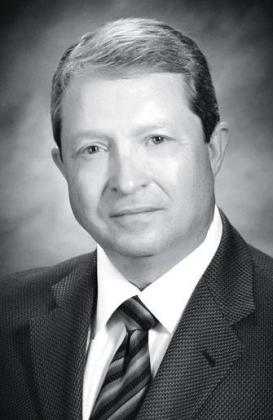
Steve Gardes
I read with great interest the recent article by the Medicaid director of Louisiana Department of Health (LDH) (Setting record straight about Medicaid, The Advocate, March 31) which concluded that it is imperative that readers get the facts (rather than deliberate misinformation) when it comes to what state government is doing to prevent Medicaid fraud. I could not agree more, so let’s do that.
A great place to start would be looking at the Minutes of the Task Force on Coordination of Medicaid Fraud Detection & Prevention Initiatives meeting held on Oct. 25, 2017. The following are a few excerpts from this meeting that are most informative:
The Legislative Auditor pointed out that “he calculated that about 208,000 applicants under Medicaid expansion are possibly not eligible.” [Note: this indicates that $1.019 billion of estimated Medicaid payments ($4,900 average annual benefit x 208,000) may be in error].
Senator Mills asked, “if someone was Medicaid eligible, but two months later landed a job which makes them now ineligible, what catches that change?” LDH responded that “LDH reevaluates the recipient when they receive reported data from other sources, but only use “25 percent reasonable compatibility” (most other states use a tighter 0 percent to 10 percent compatibility) because of the severe restraints of LDH’s system — were behind the eight ball, so until certain circumstances change in terms of resourcing, they are stuck.”
Representative Bacala said, “this shows the need to pay more attention to the eligibility determinations.”
The Legislative Auditor noted that in 2016 there were only 18 referrals related to eligibility (from a population of 1.6 million) sent to sheriffs;
Mr. Matthew Block, executive counsel for the governor, pointed out that LDH’s eligibility staff was reduced by 26 percent, and that he hopes that legislators realizes this; and next year the state is facing a fiscal cliff and LDH may face further budget cuts. Of significance, Mr. Block also observed “that it seems like the people at the table are not on the same team — We need to work together — to not pay those (fraudulent) claims and to stop them on the front end.”
Based on the above facts, It is obvious there is still much to do to improve Louisiana’s existing Medicaid fraud system. We have possibly $1 billion of questionable payments which need to be investigated; LDH, the Attorney General, and the Legislative Auditor need to be working together as a team; there must be adequate resources allocated to the LDH “Eligibility Division”; and that the passing of HB 480 (interagency data sharing) and HB 163 (create a Medicaid Recipient Fraud Unit that is funded 50 percent by Washington) should be a high priority for the legislature.
Steve Gardes is a Certified Public Accountant (CPA) and Certified Valuation Analyst (CVA) with over 40 years of public accounting experience.
